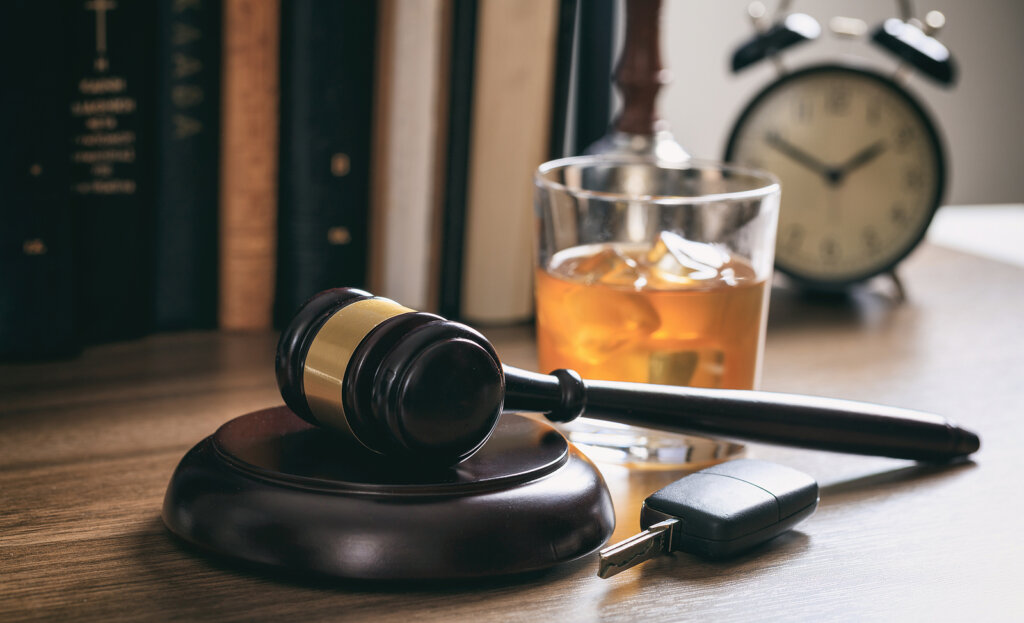Nevada’s DUI 2-Hour Rule Explained: What It Means for Your CaseJuly 18, 2025
If you are arrested for driving under the influence (DUI) in Nevada, you will typically be asked to submit to a chemical breath test to measure your blood alcohol concentration (BAC) after you arrive at the jail or station. The test, however, may not be administered immediately upon your arrival, or it may be repeated after some time has passed. Delays in the administration of a chemical breath test are often connected to the “2-hour rule” in Nevada. Understanding how Nevada’s 2-hour rule works, and how it could impact your case, is essential if you are facing DUI charges. If you have specific questions about a DUI case in Nevada, contact The Vegas Lawyers today by calling (725) 217-4768 to schedule your free consultation.

What Is the Rising Blood Alcohol Defense?
The 2-hour rule was codified into Nevada law as a response to a commonly used defense strategy used in DUI prosecutions. This defense strategy, referred to as the “rising blood alcohol defense,” is based on the way the human body processes, absorbs, and metabolizes alcohol. When there is a delay between the time a defendant was driving a vehicle and the time a breath or blood test was administered, an argument can be (and often is) made that the test results do not accurately reflect the defendant’s BAC level at the time he or she was operating the vehicle.
Because alcohol is not instantly absorbed into your bloodstream, it can take anywhere from 30 minutes to two hours for your blood alcohol concentration (BAC) to reach its peak level after consuming an alcoholic beverage. During this absorption phase, your BAC continues to rise even though you are no longer consuming alcohol. In practical terms, this means that if you consumed alcohol shortly before driving and were then pulled over and arrested for DUI, your breath test results may not accurately reflect your BAC at the time you were actually operating the vehicle. The science behind alcohol absorption gave rise to the “rising blood alcohol” defense, which alleges that a defendant’s BAC was below the legal limit when they were driving and only rose above the limit after they were arrested.
What Is the Nevada 2-Hour Rule?
The “2-hour Rule” refers to Nevada’s DUI law which allows a motorist to be charged with DUI if they are under the influence of intoxicating liquor, have a concentration of alcohol of 0.08 or more in his or her blood or breath, or are found by measurement within 2 hours after driving or being in actual physical control of a vehicle to have a concentration of alcohol of 0.08 or more in his or her blood or breath. The “within 2 hours” language was added to the statute to make it easier for prosecutors to successfully prosecute DUI cases when they are dependent on the results of a chemical breath test to garner a conviction.
Without the 2 hour “grace period” in the law, there would be a greater burden on the state to prove that your BAC level was over the legal limit at the exact moment you were operating the vehicle. If law enforcement officers are required to conduct a chemical breath test as soon as an arrestee arrives at the jail, the defendant’s blood alcohol level could be rising or falling, depending on when the individual last consumed alcohol. The 2-hour provision effectively extends the window in which the state can collect and rely on evidence of intoxication, making it more likely they will get a conviction for driving under the influence.
Contact A Las Vegas DUI Defense Attorney at The Vegas Lawyers
If you have been charged with driving under the influence (DUI) in Las Vegas, consult with an experienced Las Vegas DUI defense attorney at The Vegas Lawyers as soon as possible to discuss your legal options and defenses. Call us at 702-707-7000 or contact us online.

